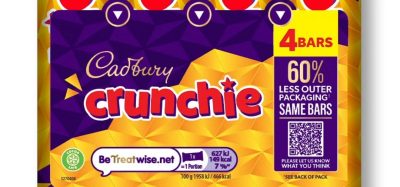Optional alcohol labelling “unacceptable” according to consumer group
Posted: 13 March 2018 | George Smith (New Food) | No comments yet
Alcohol industry have submitted proposals that will help it self-regulate the provision nutritional information about its products to consumers, but the question of where this information is presented has ruffled some feathers.


CONSUMER CHOICES: Twelve months ago, the European Commission gave the alcohol industry a deadline to for proposals on how it will regulate nutritional information
A consumer group has hit out at a proposal to give manufacturers of beer, wine and spirits a choice of where they offer information about the nutrition or ingredients of their wares.
The European Consumer Organisation (BEUC) has said it was disappointed by proposals put forward by spiritsEUROPE among other alcohol trade organisations that would give manufacturers the choice between on-label and online information.
The self-regulatory proposal is a response to the European Commission’s deadline to improve the nutrition and ingredients labelling of alcoholic products.
According to spiritsEUROPE. under current regulation, spirits producers wishing to voluntarily display nutrition information on label must do so per 100ml, which represent more than three standard servings of spirits and contradicts responsible drinking messages. This has been, and remains, a crucial problem for many operators when choosing where to display the information.
“We ask the Commission to consider allowing energy on spirits labels to be given more prominently per serving size than per 100ml, but also to require that all alcoholic beverages not habitually consumed in 100ml servings provide energy / nutrition per serving” said Ulrich Adam, Director General of spiritsEUROPE.
For BEUC however, it is “unacceptable” that the nutrition information and ingredients list of alcoholic beverages remain optional whereas they are mandatory on all soft drinks such as fruit juice and sodas. The consumer group has called on the Commission to create binding rules and to end the alcohol sector’s labelling privileges.
Monique Goyens, Director general of BEUC, said: “The industry is granting itself too much flexibility to decide how much information consumers can see. As consumers make shopping decisions in a matter of seconds, it is unrealistic to expect they will take a few minutes to check online how calorific wine or vodka is.
“Let’s not forget that in most countries more than three out 10 consumers do not own a smartphone, not to mention that the signal can be very weak in some places. So on-label information is the best way to reach consumers equally. Even if consumers own a smartphone, manufacturers should make their lives easy and enable them to compare drinks in the blink of an eye.
“Alcoholic beverages can be calorie bombs, as a glass of wine can contain as many calories as an ice cream. To make healthier choices and know at a glance what an alcoholic drink contains, consumers need the information on the bottle, not screen swipes away.
“Last year the Commission rightly acknowledged the need to boost alcohol information to consumers. It is good news that some sectors such as beer makers are open to transparency, but this is not enough to ensure seamless information for consumers. For all alcohol makers to label information systematically and in a consumer-friendly way, the only solution we see are EU-wide mandatory rules.”
Related topics
Clean Label, Health & Nutrition, Packaging & Labelling, Regulation & Legislation, The consumer









